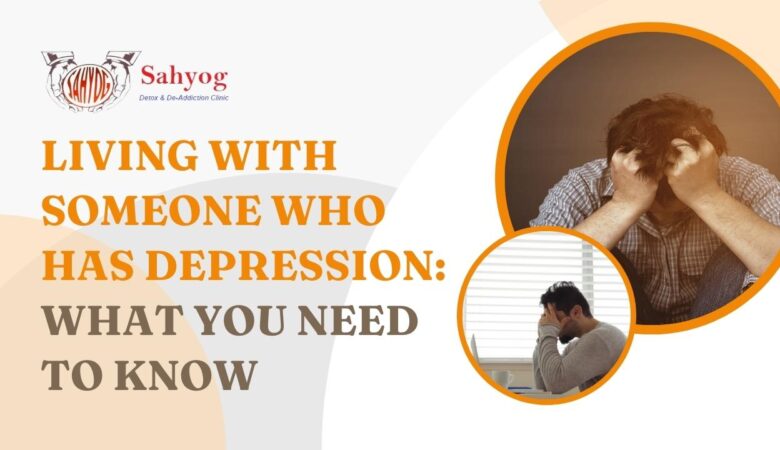How personalized treatment can save your life
Many people struggle with depression, and while this can lead to suicide if left untreated, there are also many people who struggle with depression who doesn’t end up hurting themselves. This can largely be attributed to their health care provider’s ability to tailor their treatment plan specifically to that patient’s symptoms, needs, and personality type. In this article, we will explore how personalized treatment has the power to save lives, both the lives of patients suffering from depression and the lives of those close to them who are trying to help them through it in any way they can. Treatment Tailored to You Patients with end-stage leukemia—cancer that had spread to almost every organ in their body—has a 70 percent chance of surviving five years if they receive bone marrow transplants, according to a new study. But only about one-third of patients receive such transplants, partly because doctors are hard-pressed to find an appropriate donor who is not related to them. That’s where personalized medicine comes in. Researchers recently developed genetic tests that match donors and recipients based on how similar their genes are. The tests helped double survival rates for patients receiving bone marrow transplants from unrelated donors. This is just one example of how advances in technology and knowledge will lead to more effective treatments that consider our individual differences and help us live longer, healthier lives. A Clear Diagnosis Imagine having a disease or condition that impacts every major aspect of your life, and trying to work with a doctor who doesn’t really understand what’s going on with you. This is why it’s so important to be diagnosed properly. When doctors take the time to get a clear diagnosis of what you have, it provides them with a better understanding of how to treat your disease or condition. This means they can more effectively diagnose other patients in the future. If you’re struggling with an undiagnosed health problem, don’t give up hope—there are many tools available to help figure out what’s wrong! One option is genetic testing. In most cases, getting tested for specific genes won’t provide any information about whether you will develop a certain disease; instead, these tests simply reveal whether there is a genetic mutation present in your body that could potentially cause a certain disorder down the road. If you have any chronic health conditions or take prescription medications, you should ask your doctor if there are any programs in place to help facilitate these kinds of targeted personalized treatment at your practice or hospital. You may be surprised by what you find out! Quicker and More Effective Treatments Recently, it’s become clear that personalized/individualized treatment—also known as personalized medicine—can produce significantly more effective results than traditional protocols. This is true in many areas of medicine, including oncology (cancer treatment) and other areas of specialized therapy. The key to personalization is data: Providers are combining sophisticated sequencing technologies with detailed profiles about their patients to create tailored therapies that allow for greater efficacy and fewer side effects. While these advances have been made possible by new technology, they also rely on a renewed commitment to tailoring care for each patient. This means that providers must have access to comprehensive medical records and be able to communicate effectively with one another—to ensure that all available information is being used when making personalized or treatment decisions. If you or someone you love has been diagnosed with cancer or another serious illness, don’t hesitate: Reach out today! There may be better options available than you think. Less Side Effects and Complications of Personalized Treatment The thing about personalized treatment is that they’re tailored specifically to you, so you won’t experience as many side effects and complications from chemotherapy. For example, with certain drugs, if a patient doesn’t metabolize them correctly, it can lead to adverse reactions. These risks are much lower in patients who get custom-tailored treatments. Plus, it’s important to remember that no two cancers are exactly alike—so why use a one size fits all approach? That’s why it’s critical for doctors to consider each individual case when prescribing cancer medications. Your doctor will know more about your specific condition than anyone else, so trust his or her advice on what medication is best for you. Easier Acceptance From Family Members The success of your recovery will depend on many things, but one of them is whether you’re supported. Acceptance from family members and close friends is crucial for any kind of successful rehabilitation. This means that not only are they willing to help you with rehab, but they’re also willing to accept how you’ve changed as a person. It’s significant to remember that addiction is a disease, which means it changes people in ways even they might not be able to recognize. If you want support from loved ones, make sure you know what to expect and how best to approach them about it. You may need to explain why you have changed and why they should try to understand your new way of living. You may need to show them how their behaviour affects you and why change is necessary. Most importantly, don’t forget that love goes both ways: if you truly love someone who has an addiction problem, then chances are there’s a chance they will love you back just as much – if not more – than before. Relief From Suffering Sooner One of the biggest reasons people suffer at all is because they seek relief from their suffering later. As John Lennon once said, Life is what happens while you’re busy making other plans. Yet, when we’re going through tough times, we often talk about our issues as if a solution will come sometime in the future. And so, we wait for that day and worry about it coming late or not at all—which just adds to our suffering in one way or another. In fact, many of us have an expectation that our struggles will last forever—but when



